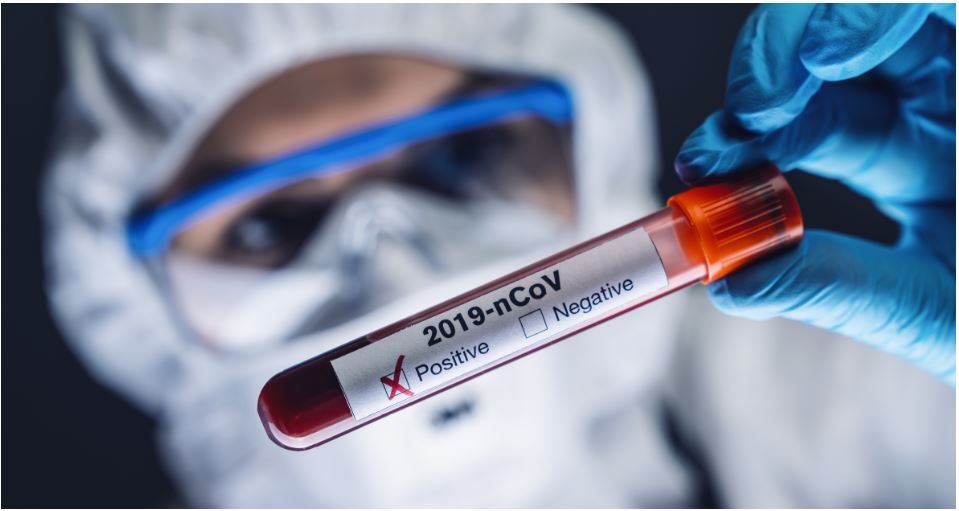- Clinical Technology
- Adult Immunization
- Hepatology
- Pediatric Immunization
- Screening
- Psychiatry
- Allergy
- Women's Health
- Cardiology
- Pediatrics
- Dermatology
- Endocrinology
- Pain Management
- Gastroenterology
- Infectious Disease
- Obesity Medicine
- Rheumatology
- Nephrology
- Neurology
- Pulmonology
Two Studies Find COVID-19 Antibodies Can Persist for Months
New research shows COVID-19 survivors continue to produce protective antibodies against key parts of the virus for at least 3-4 months after developing symptoms.
©rcfotostock/stock.adobe.com

People who survive a coronavirus disease 2019 (COVID-19) infection continue to produce protective antibodies against key parts of the virus for at least 3-4 months after developing symptoms, according to results from 2 recent studies published in Science Immunology.
Over 8 million COVID-19 cases have been confirmed in the US and >3.2 million Americans have recovered as of October 20, 2020. Patients who have recovered, however, may wonder if fending off SARS-CoV-2 once means their immune systems will protect them from reinfection. And, if so, how long could that “acquired immunity” last?
To find out, 2 recent studies sought to get a more detailed understanding of antibody responses following COVID-19 infection.
The first study—partly funded by the National Institutes of Health (NIH)—led by Richelle Charles, MD, principal investigator, Division of Infectious Diseases, Massachusetts General Hospital, enrolled 343 patients infected with SARS-CoV-2 (of which 93% required hospitalization).
Charles and colleagues measured the participants’ antibody responses for up to 122 days after symptom onset and compared them to antibodies in >1500 blood samples collected prior to the pandemic.
The researchers characterized the development of 3 types of antibodies in the blood samples:
- Immunoglobulin G (IgG)
- Immunoglobulin A (IgA)
- Immunoglobulin M (IgM)
The results showed that all 3 antibody types were present about 12 days after SARS-CoV-2 infection. IgA and IgM antibodies were short-lived against the spike protein that crowns SARS-CoV-2, vanishing within approximately 2 months.
“The good news is that the longer-lasting IgG antibodies persisted in these same patients for up to four months, which is as long as the researchers were able to look,” wrote NIH Director Francis Collins, MD, PhD, in a blog post. “Levels of those IgG antibodies also served as an indicator for the presence of protective antibodies capable of neutralizing SARS-CoV-2 in the lab. Even better, that ability didn’t decline in the 75 days after the onset of symptoms.”
The second study – led by Jennifer Gommerman, PhD, and Anne-Claude Gingras, PhD, from the University of Toronto in Canada – found similar results.
Using both blood and saliva collected from 439 people (not all of whom required hospitalization) who had developed COVID-19 symptoms 3-115 days before, the researchers profiled the same 3 types of antibody responses listed previously (IgG, IgA, IgM) against the SARS-CoV-2 spike protein.
Researchers then compared antibody profiles of the COVID-19 patients to those who tested negative for COVID-19.
A longitudinal analysis showed that IgG antibody levels peaked between 2 weeks and 1 month after infection, and then remained stable for >3 months. Also, like the first study, the researchers saw IgA and IgM levels decrease rapidly.
“The findings from the Canadian team further suggest that tests of IgG antibodies in saliva may be a convenient way to track a person’s acquired immunity to COVID-19,” continued Collins in his NIH blog post.
No Rx Required for COVID-19 Vaccination But ACIP Calls for Better Informed Consent Process
September 22nd 2025The ACIP on September 19 narrowly voted against requiring a prescription to get the shot but urged more detailed discussion of vaccine risks during shared decision making conversations.
